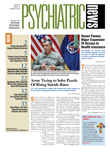California regulators rejected broad expansions in the scope of practice for allied health workers to grant them the ability to deliver services now restricted to physicians. The rejection followed strong opposition from psychiatrists and other clinicians. However, the issue is far from settled. At press time, the state's Department of Public Health (DPH) came back with a new proposal that, if adopted, would limit the expansion to psychologists.
On October 23 California's Office of Administrative Law rejected 62 regulatory changes proposed by the state's Department of Public Health (DPH) governing medical practice in all licensed health care facilities. The regulations were proposed in June 2008.
The regulatory changes, sought primarily by psychologist organizations, would have given individual facilities the authority to determine whether the scope-of-practice guidelines of various allied health care workers gave them the authority to perform numerous functions currently reserved for psychiatrists and other physicians. Among the roles that licensed nonphysicians could fill had regulations been implemented were overall authority regarding a patient's care, final discharge authority, performance of physical examinations, and authorization of the use of seclusion or physical restraints.
“It is dangerous when you leave it up to individual institutions instead of having clear guidance from the state about medical functions,” said Randall Hagar, director of government affairs for the California Psychiatric Association (CPA), which opposed the scope-of-practice expansion.
The proposed changes would have authorized each health care facility in the state, including the nearly 600 hospitals, nursing homes, and prison medical facilities, to decide whether to expand the scope-of-practice for nonphysicians who worked there.
Current state law and regulations on such scope-of-practice questions generally follow federal laws governing Medicare and Medicaid, which require physicians to develop the medical treatment plans and supervise the care of patients.
California physicians, including psychiatrists, opposed the changes over concerns that they could endanger patient safety.
Physicians “have all of these responsibilities that no other classification [of health care professional] can fulfill,” Hagar said.
Members of CPA joined the California Medical Association and medical directors of several California treatment facilities in submitting testimony to regulators explaining why they believed the changes were not in patients' best interest.
The proposed changes stemmed from a 2008 complaint from a California psychology advocacy group, Psychology Shield, to the DPH that hospitals were violating state law by not giving psychologists full attending authority. The group has filed four such complaints since 2003. The changes in state regulations also were sought by the California Psychological Association and the American Psychological Association, which submitted comments to regulators in favor of expanded powers for psychologists.
However, psychologists did not support the rejected regulations' references to “licensed health care practitioner” instead of “psychologist” because of concerns that hospitals might reject proposals for expanded privileges as outside of psychologists' traditional scope of practice.
The more general “practitioner” terminology also was a concern to CPA, which concluded that it could result in an even wider array of nonphysicians receiving full attending authority.
“The obvious consequence is: Who assumes control over the care of patients?,” Hagar said.
The regulatory review process restarted when the DPH submitted revised regulations for public comment on November 20. This regulatory revision replaced references to generic clinicians with references to “attending psychiatrist or psychologist,” Hagar said. After the 15-day public comment period, the DPH has up to one year to revise the regulatory changes before they are again submitted to the Office of Administrative Law for approval.

